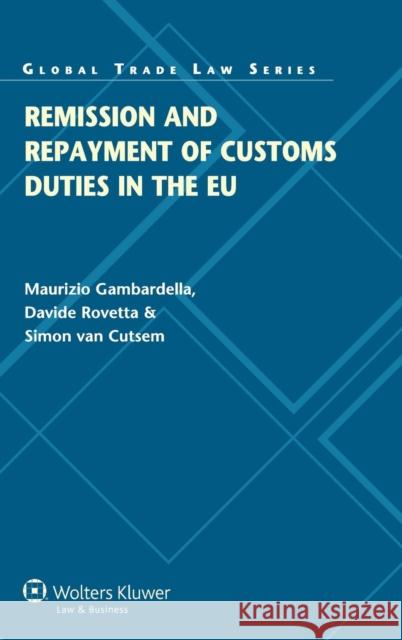Remission and Repayment of Customs Duties in the Eu » książka
Remission and Repayment of Customs Duties in the Eu
ISBN-13: 9789041147646 / Angielski / Twarda / 2014 / 208 str.
Despite the fact that business representatives need to be familiar with EU customs law and that authorities face hundreds of cases of remission and repayment on a daily basis, until now there has been no book explaining how these procedures work. There is also a need for detailed knowledge of the variety of situations with regard to remission and repayment which are not covered in the legislation but in the jurisprudence of the Court of Justice of the European Union. This authoritative analysis by three leading practitioners in this complex area of law clearly describes what procedures to follow, what legislation to rely upon, and how to effectively invoke the case law on remission and repayment created by the Court of Justice. In great detail the authors explain the administrative procedure before the customs authorities and the European Commission, and also describe the possible judicial phase before national courts and the Court of Justice. They provide an overview of how the consolidated body of EU customs legislation and case law is interpreted in different EU countries, with in-depth focus on the particular remission and repayment procedures - from initial request to appeal - in three different jurisdictions. All of the following elements and much more are covered: the current regulatory framework of the EU customs system; definitions of importation and exportation under the Community Customs Code; requirements for an application of remission and repayment; difference between an appeal against the customs debt and remission and repayment; examples of error of the customs authorities; good faith of the operator; examples of good faith in the remission and repayment context; the concept of a 'special situation'; remission or repayment of duty for goods rejected by the importer as defective; preparation of the dossier by the national customs authority and its transmission to the European Commission; appeals before the General Court of the European Union and Court of Justice of the European Union; rights of defence in case of unfavourable decisions; and the role of the European Ombudsman.











